Description
ABSTRACT
Acquisition of Land by Foreigners in Nigeria: A Legal Analysis
Victor D Ojetayo* and Ajiboye E Ibiyemi**
Globalisation has impacted everything especially with increased participation of foreigners in the business landscape and industry of other countries. Foreigners participate in the business of other countries through Foreign Direct Investment (FDI) or Portfolio Investment. This may sometimes have to do with acquisition of landed properties. Beyond doing business, an individual resident foreigner in Nigeria may wish to own real properties. What are the legal perspectives to this? The paper addresses the issue based on relevant case laws and statutory provisions.
Keywords: Landed Properties, Foreigners, Acquisition, Land Use Act.
INTRODUCTION
The land tenure system operative in the pre-independence Southern Nigeria was the communal and family land ownership land tenure system whereby land was held by the community under the control and management of the head chief, the Oba etc. In 1861, King Dosumu of Lagos (the 13th in succession) signed a Treaty with the British Crown dated August 6, 1861, whereby he purportedly on behalf of himself and the Chiefs, ceded to the British Crown ‘the port and Island of Lagos with all the rights, profits and territories and appurtenances whatsoever thereunto belonging’. In terms of legal effect, judicial authorities have described the Treaty of Cession in relation to the traditional land ownership structure in Lagos as having related primarily to sovereign rights only and had nothing to do with the proprietary rights of the various landowning families in Lagos.1
Subsequently, the system of Crown Grants was introduced in Lagos through various Crown Grants Laws with the aim of introducing the English tenure and individual ownership of land. The result of this was a dual system characterized by a concurrent application of traditional land tenure system as well as the received land tenure system which was also witnessed in other parts of Southern Nigeria.
A BRIEF HISTORY OF THE LAND TENURE SYSTEM IN NIGERIA
A general description of land holding under the land tenure system in Southern Nigeria was provided in the case of Amodu Tijani v Secretary Southern Nigeria thus:
The next fact which is important to bear in mind in order to understand the native land law is that the notion of individual ownership is quite foreign to native ideas. Land belongs to the community, the village or the family, never to the individual. All members of the community, village or family have an equal right to the land, but in every case the Chief or Headman of the community or village, or head of the
* LL.B, BL, AIIPSM. Lecturer at Ajayi Crowther University, Oyo, Nigeria.
** LL.B, BL. Associate at Banwo & Ighodalo, Lagos, Nigeria.
- Attorney General of Southern Nigeria v John Holt [1910] 2 NLR 1.

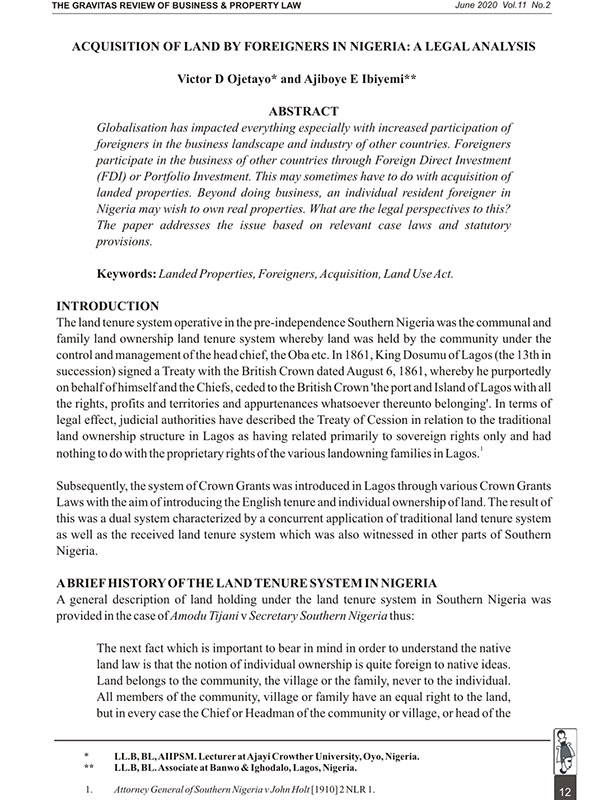
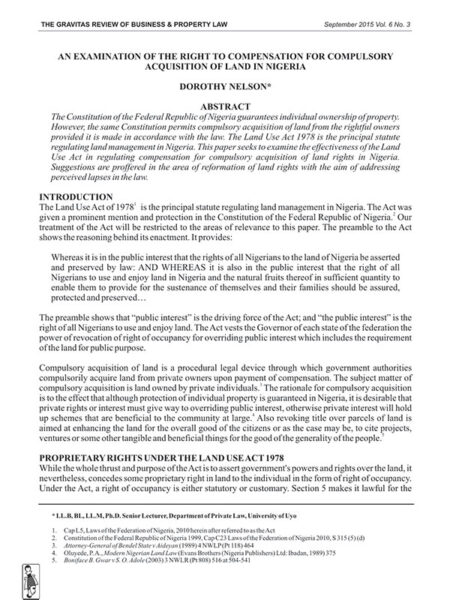
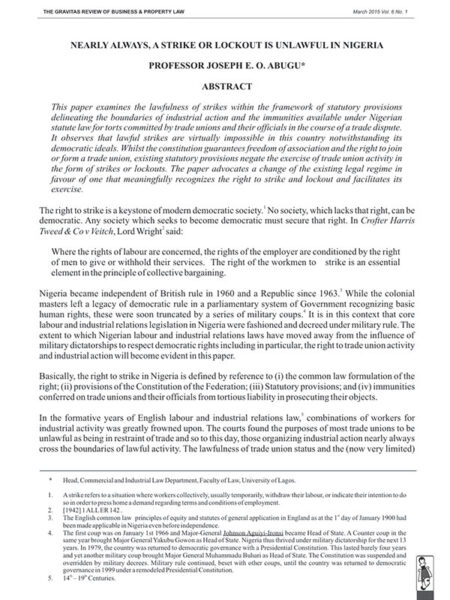
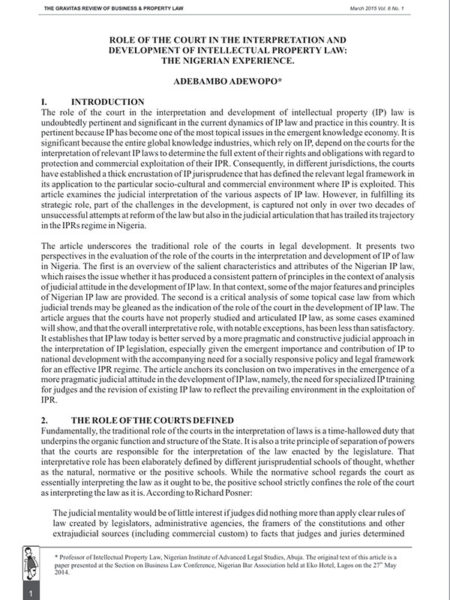
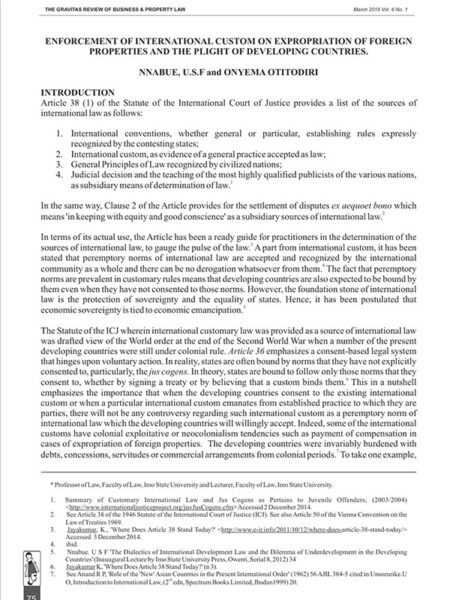


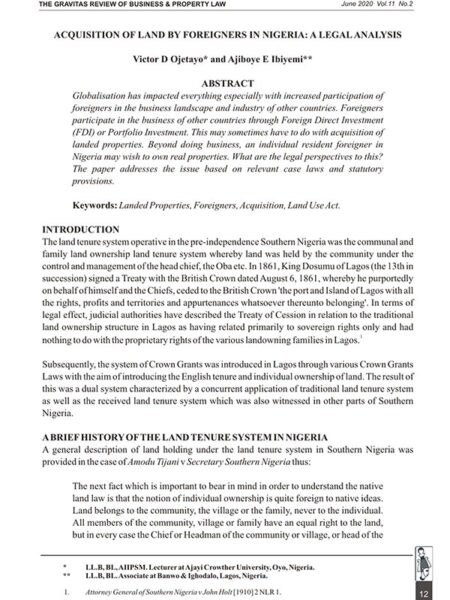
Reviews
There are no reviews yet.